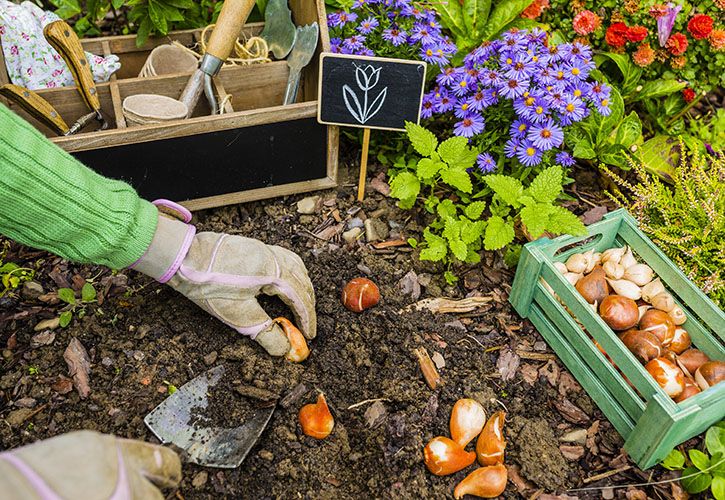UK DIY News
HTA Warns On Plant Shortages If Peat Ban Brought Forward

The horticultural industry warns of plant shortages for UK gardeners by 2027 if a ban on peat is brought forward to end of 2026.
- Defra date shift on peat ban risks devastating impacts on the horticultural industry and the Government’s 25-year Environment Plan, new HTA survey shows
- Commercial growers project a shortage of 100 million plants and trees in the year immediately following the ban
- Professional peat use is already below 50% of previous levels and on track for the original 2030 deadline
- Sector reiterates calls to support a sustainable transition from peat use not to undermine the UK horticulture and garden industry.
New data from the Horticultural Trades Association (HTA) shows there is likely to be a severe impact on plant availability after recent government indications that a ban on professional peat use in the horticultural industry will be brought forward by four growing seasons.
The Department for Environment, Food and Rural Affairs (Defra) has stated its intention to ban peat in commercial plant, tree, fruit, and vegetable production by the end of 2026 rather than 2030, as previously indicated. This would more than halve the number of growing seasons commercial growers have to complete extensive trialling to changes in their crop production techniques, raising serious concerns about potential environmental and economic impacts.
Shortage of 100 million plants and trees
In a survey of its members, commercial growers projected a shortage of 100 million plants and trees for sale in the UK in the year immediately following the ban. This shortage could result in a significant loss of greenery and biodiversity in gardens, parks, and streets, depriving the UK of its vibrant natural landscapes.
We can protect jobs, preserve biodiversity…
James Barnes, Chairman of the HTA, urged the government to reconsider the timeline and ensure a manageable transition away from peat use, allowing adequate time for growers to successfully and sustainably trial and adapt their methods and materials.
He explained, “By doing so, we can protect jobs, preserve biodiversity, and continue to enjoy the physical and mental health benefits that arise from our connection with nature.
“The long-term impacts on Britain’s horticultural industry and the environmental benefits it delivers will be seismic and out of all proportion with the environmental gains of bringing in a peat ban a few years early – at a time when the industry is already demonstrating year on year reduction in its use.
Without proper consultation or impact assessment
“Defra's recent announcement without proper consultation or impact assessment has raised concern across horticulture – from retailers to growers. The industry shares the ambition to deliver a sustainable transition from peat use, with the same environmental outcomes as Defra, but requires the government to find a way forward that aligns environmental ambitions with the economic viability of the environmental horticultural sector.
"The HTA has long championed sustainable practices and supports the industry's transition from peat use, and much work has been happening to reduce it. UK commercial plant growers are well on their way to voluntarily removing peat by 2030, as encouraged by the government over the past decade. The use of peat in bagged compost is at a record low on a sharp trajectory towards zero, and professional use is already below 50% volume of previous levels. This puts the UK ahead of the rest of Europe on the peat-free journey.
Some plants are problematic to grow in peat free compost
“The HTA's survey findings depict a grim outlook for the horticultural industry and the millions of gardeners who rely on it. Some plants are problematic to grow in peat free compost, and further trials are needed. One in three suppliers to parks and public green spaces fear they will be unable to fulfil their obligations, potentially leading to defaults or contract withdrawals.
“Garden centres, a vital source of plants and trees for consumers, predict they will have gaps and reduced product lines by 2027.
Increased water and nutrient usage
“The HTA survey also reveals that two-thirds of the UK's commercial growers anticipate increased water and nutrient usage as they are forced to use peat-free alternatives without testing the best ways of using water and nutrients in a new growing medium.
“These new irrigation regimes will put pressure on efforts to increase water resilience and reduce use, a priority for the UK with increased extended drought periods, such as seen in 2022.
68% of garden centres expecting to reduce staff
“Furthermore, the HTA warns of severe economic repercussions, with an estimated 68% of garden centres expecting to reduce staff due to decreased plant and tree sales and all the associated products that relate to container gardening in particular.
“These consequences ripple throughout the supply chain, impacting jobs in garden retailers, nurseries, and landscape maintenance services. Many of these businesses are small, family-run establishments that have been passed down through generations and employ members of the local community.
Crucial to reassess the accelerated peat ban
“Given these statistics and the impending threat of a shortage of plants and trees, it is crucial to reassess the accelerated peat ban. The HTA calls for collaborative and responsive engagement with Defra to gain clarity on the policy shift and seek alternative solutions that strike a balance between environmental goals and the wellbeing of the horticultural industry, as well as the wellbeing of the nation.”
Source : Reproduced with permission from George Bullivant at GardenForum
Image : shutterstock.com / 497726008
Insight provides a host of information I need on many of our company’s largest customers. I use this information regularly with my team, both at a local level as well as with our other international operations. It’s extremely useful when sharing market intelligence information with our corporate office.











































